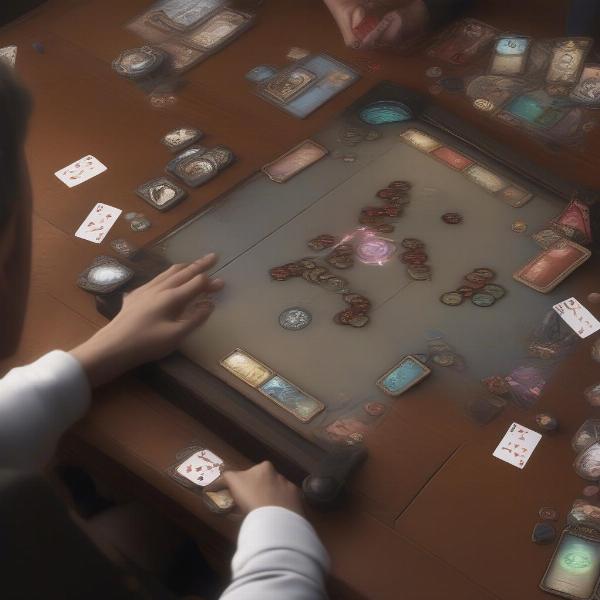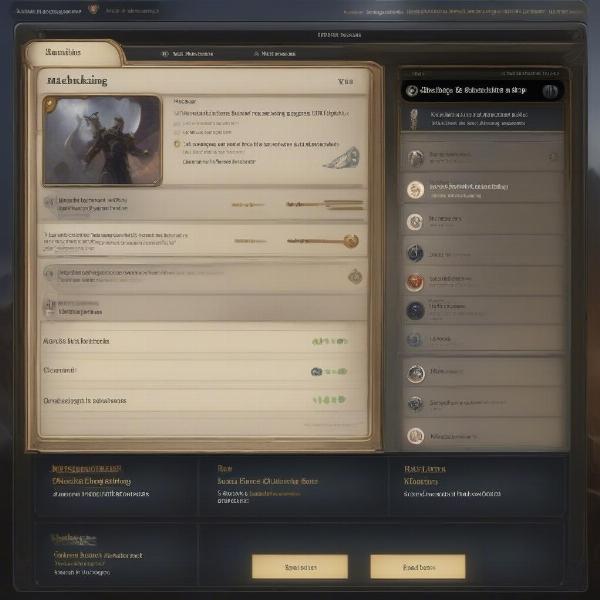Have you ever queued up for a match in Magic: The Gathering Arena (MTGA), only to see your opponent concede before you even get a chance to play a card? This frustrating experience, where MTGA people concede before you can play a game, is more common than you might think. Here at SupremeDuelist.blog, we’re diving deep into the reasons behind this trend, exploring the mechanics, the psychology, and the meta-game factors that contribute to early concessions.
This article will explain why players are often quick to concede in MTGA and provide insight into how the game’s design encourages this behavior. We’ll also explore how this trend impacts both casual and competitive gameplay, and what, if anything, can be done about it. By understanding the driving forces behind early concessions, you can better navigate the MTGA landscape and maybe even pick up some strategies of your own.
Why Do MTGA Players Concede So Early?
The phenomenon of early concessions in MTGA isn’t just random; it’s often a calculated decision based on various factors. Several common triggers prompt players to concede before any meaningful game action occurs. These include poor opening hands, unfavorable matchups, or even just a desire to save time. Let’s delve into these reasons in more detail.
Unfavorable Opening Hand
A significant trigger for early concessions is a poor opening hand. MTGA, like its paper counterpart, relies heavily on drawing a playable mix of lands and spells. If a player’s starting hand is too heavy on lands or lacks any mana sources, they’re often at a significant disadvantage from the get-go. In this scenario, many players prefer to concede immediately rather than try to struggle through a game they believe is unwinnable. This is especially prevalent in faster formats where a slow start can be a death sentence. This is a basic consideration and understanding of tempo and card draw.
The Quick Matchup Assessment
The knowledge of what deck your opponent is playing is crucial in MTGA. Before the first card is even played, skilled players can often identify their opponent’s strategy based on the initial land or spell played. If your opponent is playing a deck that directly counters yours, early concession becomes a logical strategy. For instance, an aggro deck facing a heavy control deck might choose to concede and move on to a better matchup. This efficient method of climbing the ladder is a significant factor in ranked play.
 mtga-player-conceding-early
mtga-player-conceding-early
The Speed and Efficiency of MTGA
MTGA’s digital nature plays a significant role in the prevalence of early concessions. Unlike paper Magic, where setting up a new game involves shuffling and physically dealing, MTGA allows for almost instantaneous game restarts. This makes conceding and finding a better matchup a much faster process. Players who are time-constrained, or those simply looking to climb the ranks efficiently, can take advantage of the speed to bypass unfavorable situations. The ability to instantly move on to another game is often preferable to slogging through a losing one.
Psychological Factors
It’s not all about strategy and efficiency; psychology also plays a role. Sometimes, players simply concede because they’re tilted or in a bad mood. After a few tough matches, some players might become more likely to give up early when they encounter a bad opening hand or a bad match up. The anonymity of online play can also make it easier for players to concede without feeling any social pressure, something that might not occur as frequently in person. This could also be related to not wanting to waste time and energy on a game they believe they are going to lose.
“The digital format of MTGA really amplifies the efficiency mindset,” explains Dr. Evelyn Reed, a behavioral game analyst. “Players prioritize time and ranking gains, leading to more concessions when an early advantage isn’t perceived.”
How Does Early Conceding Affect Gameplay?
The high incidence of early concessions has several noticeable impacts on the MTGA experience. For casual players, it can lead to frustratingly short games and the feeling that actual gameplay is being bypassed. In contrast, for competitive players, it alters the strategic landscape, as they must factor in the likelihood of opponents conceding and adapt accordingly.
The Casual Player Experience
For casual players, encountering frequent early concessions can be especially disheartening. The intention of casual play is generally to have enjoyable, engaging games, but a consistent stream of players conceding before you get to play can hinder that. It can lead to a feeling of missed opportunities and less investment in each game, especially if you were looking to practice a specific deck or interaction. This can lower the overall enjoyment of the game.
Ranked and Competitive Play Impact
In ranked play, early concessions can be both a blessing and a curse. On the one hand, they can offer quick wins to players who are lucky enough to draw favorable opening hands or have a good matchup. On the other hand, it can mean that the overall strategic depth of matches is reduced, as players are less likely to play out difficult situations. This behavior shapes the meta and affects deck building choices as more decks are geared toward early wins. This is especially prevalent in formats such as Alchemy or Historic.
“Conceding is an interesting, albeit frustrating part of MTGA. It’s become a strategy of its own, especially in competitive play. Players can save valuable time by dodging unfavorable matchups.” says Jason Tran, a long-time MTG player and content creator.
Is There Anything That Can Be Done About Early Concessions?
While it’s unlikely that early concessions will disappear entirely, there are some actions that MTGA developers could take to address some of the issues. Changes could include encouraging more “comeback” mechanisms, tweaks to the matchmaking system, or perhaps even incentives for playing out difficult matches.
Potential Game Design Changes
One possible change could be implementing mechanics or rules that reduce the perceived importance of early advantage. For instance, a mechanic that allows players to draw an extra card or generate more resources after a mulligan could make players less likely to concede due to poor starting hands. Also, increasing the impact of later draws could encourage players to stick with matches even when they are facing a disadvantage.
Matchmaking and Queue Considerations
Another approach would be to tweak the matchmaking system to prioritize more balanced matchups. If a player is consistently encountering hard counters, it’s more likely they will concede early. A more sophisticated system that takes into account not just rank but also deck type and recent game performance could help to mitigate this. This type of tweaking can help balance the player experience and reduce some frustration.
Incentives for Playing Through Tough Situations
MTGA could explore implementing a system that rewards players for continuing a game, even when the situation looks difficult. This could be small daily bonuses or some form of additional reward for participating in longer games. Anything that slightly diminishes the time and efficiency argument could have a positive impact on early conceding.
 mtga-matchmaking-interface
mtga-matchmaking-interface
Navigating the MTGA Landscape
Dealing with players who concede before you get to play is an undeniable part of the MTGA experience. While these concessions can be frustrating, understanding the reasons behind them can help you better navigate the game. You can adapt your own strategies, build decks that are less susceptible to quick defeats, and learn to make the most of the games that do play out.
The efficiency of MTGA has created a meta where the “early out” is common. Instead of being disheartened by it, you should see this as part of the game itself. Adapt and strategize to not only take advantage of the system but enjoy the games that do materialize.
Conclusion
The fact that MTGA people concede before you can play a game is a complex issue stemming from game mechanics, digital efficiency, and player psychology. While it can be frustrating, understanding the motivations behind these early concessions is vital for navigating the current MTGA meta. Here at SupremeDuelist.blog, we hope that this analysis has given you valuable insights into this phenomenon. Remember to adapt your play style, experiment with deck design, and focus on maximizing your opportunities to learn and improve in MTGA. Check back frequently for more analysis, tips, and strategies to help you conquer the MTGA arena!
Leave a Reply